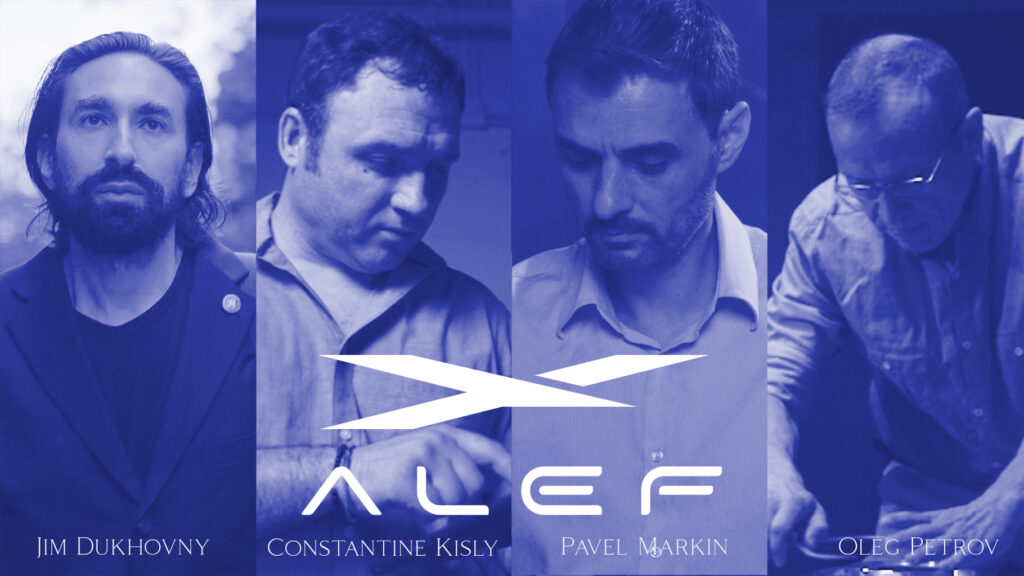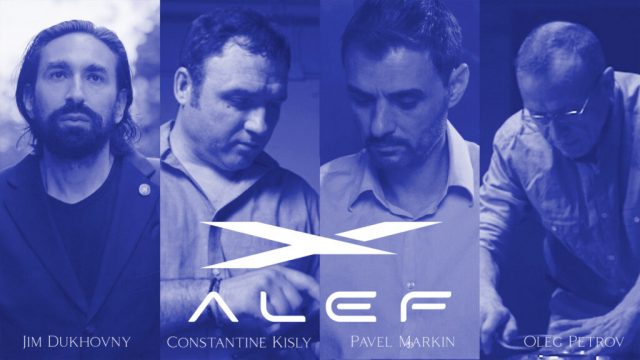
By Anan Ashraf
In an exclusive conversation Jim Dukhovny, co-founder and CEO of Alef Aeronautics Inc, delved into the advent of its electric flying car and the company’s vision to redefine urban transportation. An avid science fiction fan, Dukhovny talked about the milestones crossed and ahead, the hurdles along the away, and Alef’s ambitious plans for the future.
The Genesis: From Science Fiction to Reality
The concept of the flying car took root from a problem. As Dukhovny navigated the congested streets of various cities, he couldn’t ignore the persistent problem of traffic congestion.
“Everything starts with a problem. As I was driving to work, that came up as a problem. Initially, it was tackling a problem, and it turns out the solution was already there,” he revealed. “So now you have to just come up with the engineering behind it.”
Four techies- Dr. Constantine Kisly, Pavel Markin, Oleg Petrov, and Jim Dukhovny- thereby came together in 2015 to form a company and build a flying car.
Science fiction played a significant role in the formation of Alef, its futuristic product, and movies.
Dukhovny, whose love for science fiction is a hand-me-down from from his father, said, “So it turns out one of my favorite books is kind of the same as Tim Draper’s favorite book and from what I know, Elon Musk’s — that’s one of his favorite books too — Foundation by Isaac Asimov.”

Beyond EVTOL To A Flying Car
While the world often associates electric vertical take-off and landing (EVTOL) with flying cars, Dukhovny clarified that Alef Aeronautics is not in the EVTOL business.
“We have something to do with them, but we’re not EVTOL. We are utilizing the same infrastructure as automotive. We have a different market — a market similar to automotive,” he said.
Alef, whose name is the first letter of the several languages including Persian and precursor to Greek alpha, is looking to create a car with an added functionality of flying. Alef’s flying car is fully electric, can drive on roads and also take off vertically and land while carrying one or two passengers.
“What we are trying to do is replacing your Toyota, Tesla, or something else. We are trying to replace, we’re trying to give you exactly the same experience, but better,” he said. “First and foremost, it’s a car. It’s automotive with one more functionality of flying.”
And just like its name suggests, the company aims to be the first in the market to do so.
Alef’s flying car is a low speed vehicle which can fly forward over obstacles until destination. The concept images of the car shows the vehicle body operating as wings while the driver and the cabin are stabilized by a gimbaled rotating cabin design.
FAA Special Certification and Investor Interest
In late June, Alef announced that it has received a Special Airworthiness Certification from the U.S. Federal Aviation Administration (FAA). The certification, though limited in terms of the locations and purposes for which Alef is permitted to fly, marks the first time a flying vehicle of the kind has received legal approval to fly in the U.S. The milestone resulted in a surge of interest from investors and customers alike.
“We received 1,800 requests for investment after the special certification announcement,” Dukhovny revealed. A month after receiving the certification, the company also announced that it received 2500 pre-orders collectively from individuals and businesses.
While U.S. traffic troubles may have ignited the initial spark, Jim emphasized that their launch location would depend on jurisdiction rather than need. The United States presents unique challenges for full certification, making Alef Aeronautics likely to launch first outside the country, with the aim of eventually launching on home ground.
The Roadmap To Affordable Flying Cars
Alef currently has a price tag of about $300,000 for its flying car. However, it understands the need to make it accessible to a broader market.
“We’re trying to get it closer to your regular sedan. It’s going to take a lot of time, but fundamentally, there’s nothing more expensive about it,” he explained.
“…I think it’s gonna take a lot of time,” Dukhovny said. “But the reason your Toyota Corolla costs $35,000 or $40,000 is because it has volume — because they’re producing millions of those. We still need to get there. So volume is important. Also, automation and making things work efficiently — we still have a long way to go.”
“Fundamentally, we would be there. I am pretty much sure the first sedan also cost a lot. And then, as you go forward, you reduce the price,” Dukhovny added.
The current price tag puts Alef’s flying car in the same price bracket as high-end cars such as Bentley Flying Spur or an Aston Martin V12 Vantage Coupe.
The Choice Of Going Electric
The team of four co-founders came down to electric after a lot of assessment and constraints including of size, weight and price.
“We did a lot of this analysis and it was hands down electric,” Dukhovny said. “The idea of ‘I used to live in a big city’ … so that idea of having a city which has clean air is also pretty good idea.”
“You don’t want to have a million flying cars which are throwing gasoline in, right?” Dukhovny said.
The company is also eyeing hydrogen as a possible fuel choice. However, the hydrogen industry is yet to mature as the EV industry despite being expensive.
“There are still things to solve in that industry. This is why we’re keeping it on the back of our minds, for when the hydrogen in the industry matures enough for us to use,” the CEO said.

Future Takes Flight
While a fixed delivery timeline remains uncertain, Dukhovny envisions production to begin by 2025. “Tt’s actually impossible to fix a deadline and again, I cannot communicate like other EV companies like, saying we’re gonna deliver this and then we come to the date and nothing happens. That’s definitely not how it works,” the CEO said. However, there is actually a possibility of getting it sooner as well in a good case scenario, he added.
The key challenges of time and resources persist. The founders expected to build a flying car in six months at the onset of the company in 2015. Since then, it has been running against time and there is a lot that could be done with more resources, Dukhovny said.
However, the company is now preparing for a public demo “as soon as possible.”
“We want to make sure we get a good first impression and we want to make sure we have not only functionality which is groundbreaking, but also nice design,” Dukhovny said.
Produced in association with Benzinga





